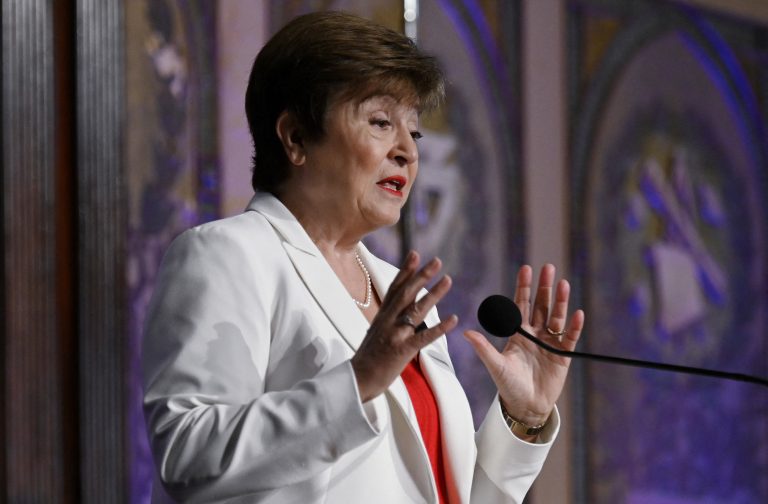The International Monetary Fund (IMF) will next week downgrade its forecast for 2.9 percent global growth in 2023, Managing Director Kristalina Georgieva said on Oct. 6, citing rising risks of recession and financial instability.
Georgieva said the outlook for the global economy was darkening given the shocks caused by the COVID-19 pandemic, Russia’s invasion of Ukraine and climate disasters on all continents, and it could well get worse.
“We are experiencing a fundamental shift in the global economy, from a world of relative predictability … to a world with more fragility – greater uncertainty, higher economic volatility, geopolitical confrontations, and more frequent and devastating natural disasters,” she said in the text of a speech at Georgetown University.
Georgieva said the old order, characterized by low interest rates and low inflation, was giving way to one in which “any country can be thrown off course more easily and more often.”
She said all of the world’s largest economies – Europe, China and the United States – were now slowing down, which was dampening demand for exports from emerging and developing countries, already hit hard by high food and energy prices.
Success
You are now signed up for our newsletter
Success
Check your email to complete sign up
The IMF would lower its 2023 growth forecast from 2.9 percent, its fourth downward revision this year, when it releases its World Economic Outlook next week, Georgieva said. The global lender would leave its current forecast for 3.2 percent growth in 2022 unchanged, she said, and gave no number for the new 2023 forecast.
The war in Ukraine and global economic risks will dominate next week’s annual meetings of the IMF and the World Bank in Washington, which bring together finance ministers and central bankers from around the world.
Overall, the IMF expects global output to shrink by $4 trillion between now and 2026. That is roughly the size of the German economy and amounts to a “massive setback,” she added.
Uncertainty remained high and more economic shocks were possible, she said, warning that high debt levels and liquidity concerns could amplify the rapid and disorderly repricing of assets on financial markets.
Georgieva said inflation remained stubbornly high, but central banks should continue to respond decisively, even if the economy slowed down.
Fiscal measures adopted in response to high energy prices should be targeted and temporary, she said.
Georgieva urged greater support for emerging markets and developing countries, noting that high interest rates in advanced economies and the strong dollar had triggered capital outflows. The probability of portfolio outflows had risen to 40 percent.
She also called on China and private creditors – who hold the lion’s share of global debt – to address the risk of a widening debt crisis in emerging markets.
By Reuters (Production: Gershon Peaks, Colette Luke)







